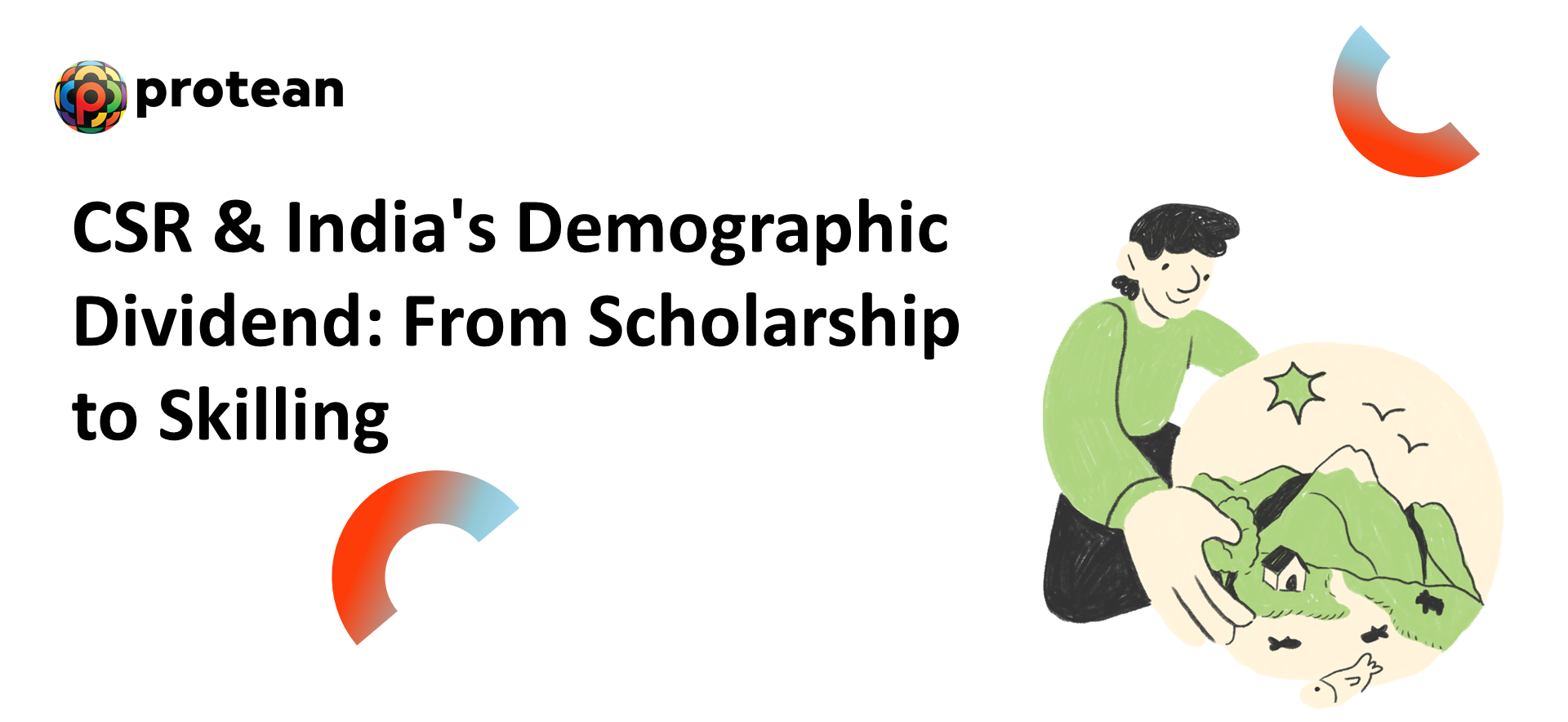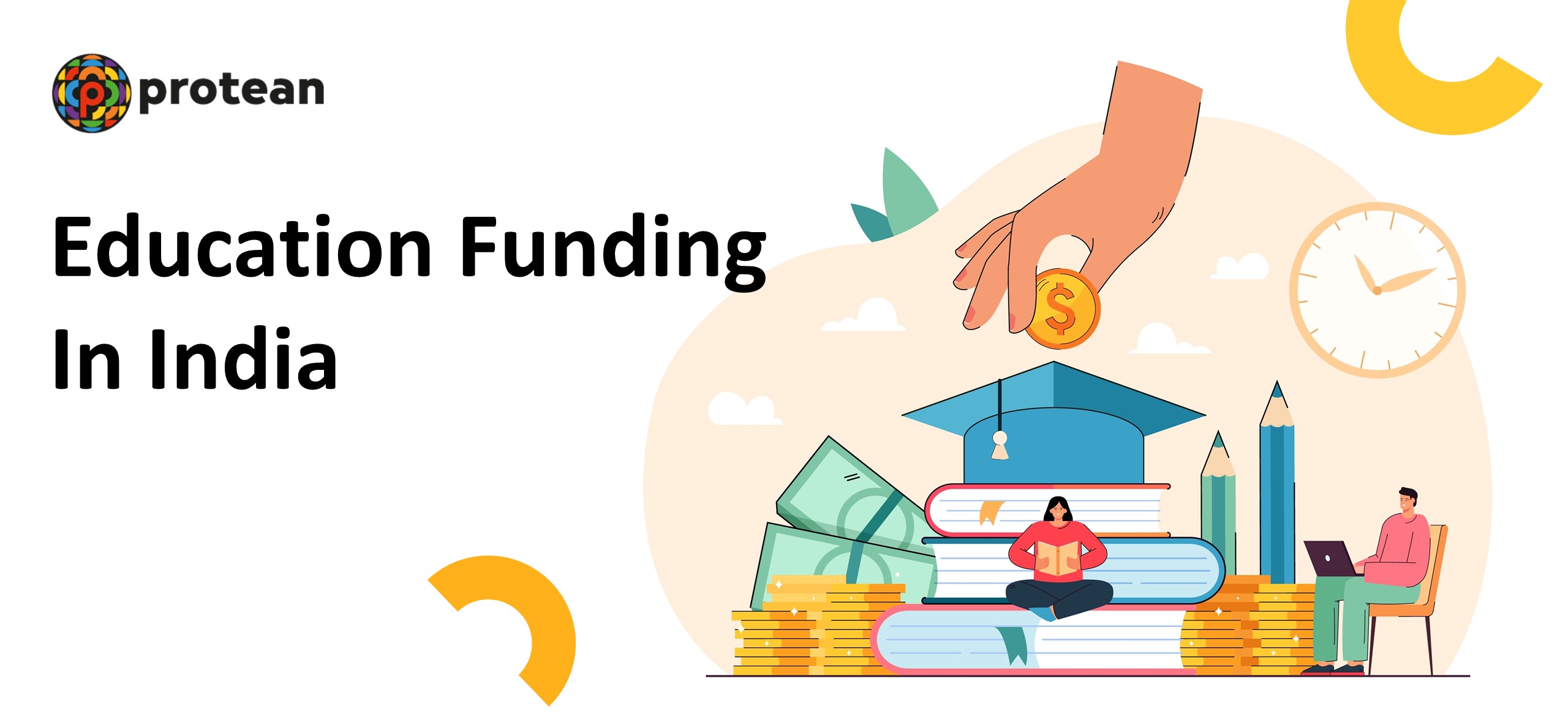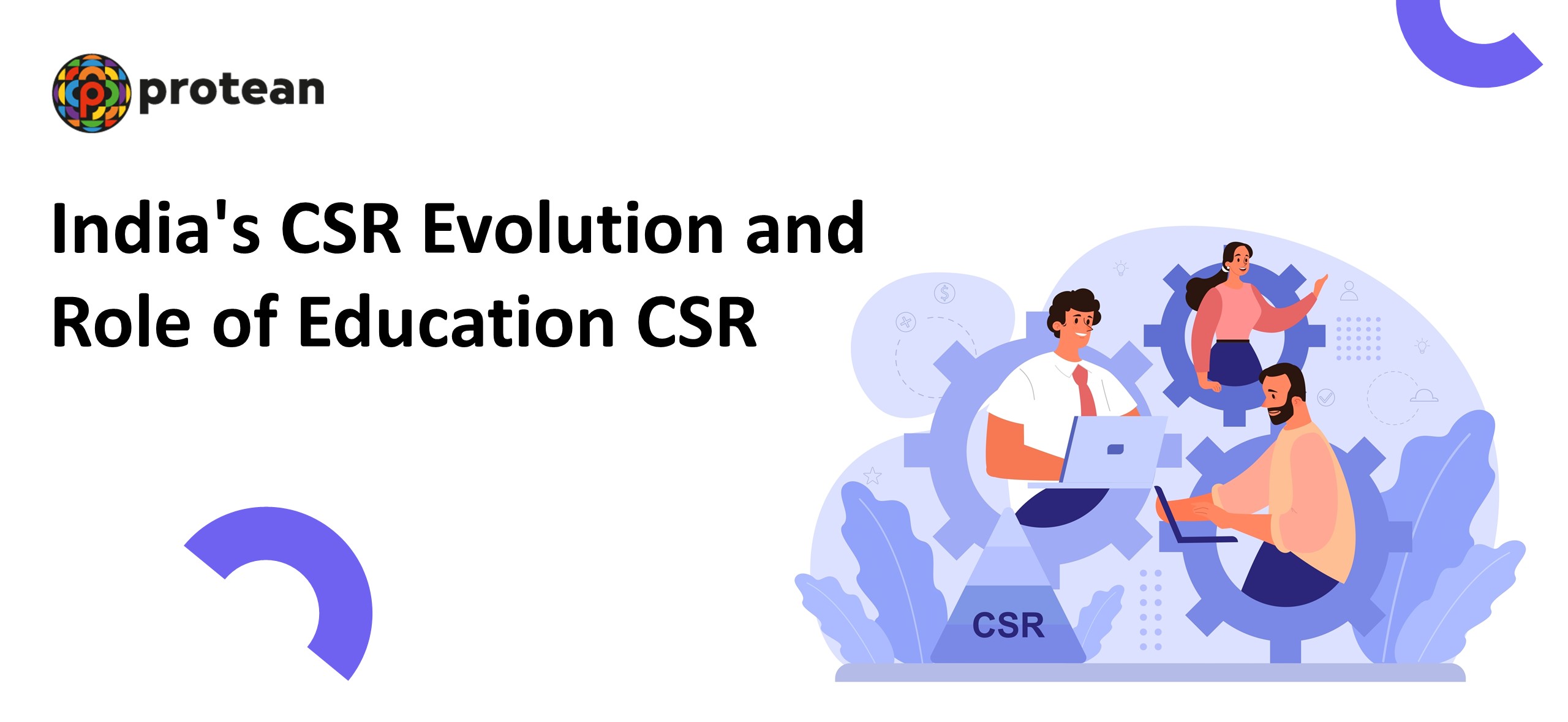Blogs
From Scholarships to Skilling: CSR’s Role in Unlocking India’s Demographic Dividend
India is at a critical juncture in its history, holding a powerful advantage that few other nations possess: its demographic dividend. With over 65% of its population under the age of 35, India has a time-sensitive opportunity to convert its immense youth population into a productive, economic powerhouse. The window for this opportunity, which began around 2005-06, is expected to peak around 2041 and last until 2055. However, this demographic potential is not an automatic guarantee of success. It hinges entirely on the nation’s ability to equip its young workforce with the right skills for the future.
While significant strides have been made in expanding access to education through various initiatives, a major challenge persists: the skill gap. According to the India Skills Report 2025, India's national employability rate stands at 54.81%. This figure, while a steady improvement from a decade ago, means a staggering number of graduates are still not considered ready for the workforce. The disconnect between academic learning and industry demands remains a critical hurdle that must be overcome.
This is where corporate social responsibility (CSR) has a pivotal role to play. By strategically linking education with skilling, CSR can create a seamless bridge from learning to earning, directly fueling India's demographic dividend.
The Scholarship Imperative: A Necessary, But Incomplete, Step
For years, scholarships have been a cornerstone of corporate education-focused CSR, and for good reason. They are a powerful tool for:
1. Expanding Access
Scholarships remove financial barriers, allowing deserving students from underprivileged backgrounds to attend schools and colleges they otherwise couldn't afford.
2. Promoting Equity
They help level the playing field, ensuring that talent is not limited by a student's economic status.
However, scholarships on their own are only a partial solution. They provide the "access," but they don't always guarantee the "outcome." A student who receives a scholarship and completes a degree may still struggle to find employment if their skills don't match the needs of the modern job market. The real impact of a scholarship is unlocked only when it translates into a sustainable livelihood.
The Missing Link: Skilling Through CSR
The conversation around CSR and education needs to evolve. While CSR spends on education infrastructure are rising, skilling still accounts for a relatively small fraction of total allocations. The India CSR Outlook Report 2023 shows that corporate interest in vocational skill development is only 13%. The path to unlocking India’s demographic dividend requires a fundamental shift in strategy. Programs must pivot from just supporting academic study to actively enabling job readiness and employability.
This means CSR programs need to focus on equipping beneficiaries with the skills that are in high demand across industries—the kind of skills that directly translate into jobs.
| Also Read: The Role of Education in India's CSR Landscape |
High-Demand Skills: A Roadmap for CSR Investment
To maximize impact, CSR initiatives must target skills that are future-ready and job-linked. The following areas represent some of the highest-impact opportunities:
1. Digital Skills
Proficiency in areas like AI, data analytics, cloud computing, and web development are in demand across nearly all industries. Investing in these skills not only creates career opportunities but also helps students thrive in a technology-driven economy.
2. Green Jobs
With a global shift towards sustainability, green jobs are a rapidly growing sector. The International Labour Organisation projects that India could gain 8 million additional green jobs by 2030. These opportunities span renewable energy, electric mobility, and sustainable agriculture.
3. AI-Driven Skills & Soft Skills
As AI automates routine tasks, human-centric skills become even more critical. According to the India Skills Report 2024–25, AI-driven skills and soft skills—such as communication, critical thinking, and adaptability—are flagged as critical employability gaps. CSR can play a vital role in addressing this by funding programs that teach these essential abilities.
Case Studies: Models of Success
The most effective CSR programs are those that create integrated models. For example, a corporate could fund STEM scholarships for students and simultaneously provide them with coding and AI skilling modules. Another model could involve supporting a student's degree program and then offering a paid apprenticeship or internship that builds on their academic knowledge. These examples demonstrate how a dual-focus approach creates a powerful synergy, multiplying the impact of the initial scholarship.
Technology as the Enabler: The Bridge to Outcomes
One of the biggest operational hurdles for CSR teams is managing complex programs in hard-to-reach geographies. This is where technology acts as a crucial enabler, bridging the gap from intent to outcome. Digital platforms like Vidyasaarathi are designed specifically to manage this integrated approach.
These platforms provide an end-to-end digital solution that can:
1. Manage Student Lifecycle
From a student's initial application and financial support to skilling interventions and job placements.
2. Ensure Transparency
Track every step of the process, from fund disbursal to program outcomes, providing real-time data for compliance and reporting.
3. Measure Impact
Go beyond simply tracking funds spent. These platforms can provide measurable outcomes, showing how many students successfully transitioned from the program to a job.
With a robust tech backbone, channelling CSR funds into underserved areas doesn't just become possible, it becomes practical, sustainable, and highly measurable.
Conclusion: From Potential to Productivity
India's demographic dividend is a time-sensitive opportunity that can fuel decades of economic growth. To realize this potential, CSR must move beyond traditional models of giving. By strategically combining scholarships for access and job-linked skilling for employability, corporates can create a powerful, self-sustaining cycle of progress.
The challenge is not a lack of intent or funding; it is a lack of the right infrastructure to connect resources with the communities that need them most. Without this crucial shift toward holistic, integrated models, India risks missing its biggest opportunity. The future of CSR lies in converting this potential into productivity, one scholarship and one skill at a time.






